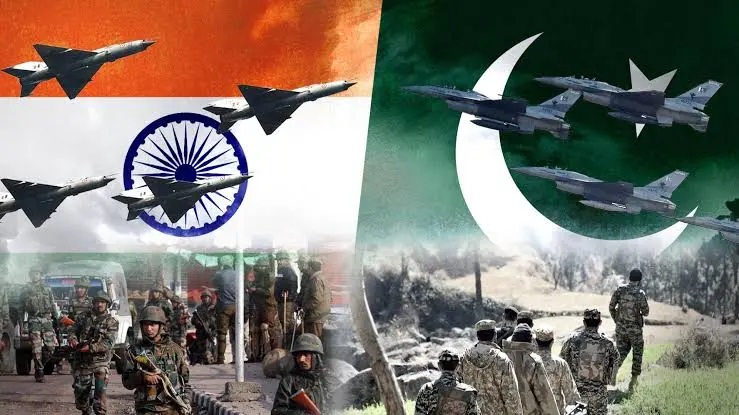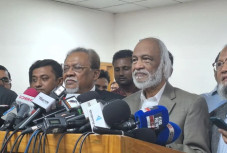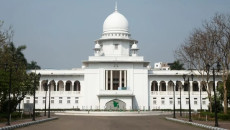
নিউজ ডেস্ক
10 May, 2025 03:20
India-Pakistan War: The Looming Crisis for Bangladesh
If conflict erupts between India and Pakistan, Bangladesh could face major humanitarian, economic, and geopolitical consequences despite not being directly involved.

The specter of war between India and Pakistan—two nuclear-armed neighbors—remains a serious concern for South Asia. While Bangladesh is not a participant in this long-standing rivalry, its geographic and economic proximity means that it cannot avoid the ripple effects. A full-scale conflict between these two nations could disrupt Bangladesh's social fabric, economic growth, and regional standing in ways that deserve serious attention.
Refugee Influx: A Humanitarian Emergency in the Making
History reminds us that wars often lead to waves of displaced people. If India and Pakistan go to war, it is highly probable that people from India's border states may seek refuge in neighboring Bangladesh. The resulting refugee crisis would strain Bangladesh’s already limited resources in terms of food, shelter, healthcare, and sanitation. Given past experiences, such as the 1971 war, Bangladesh must prepare for a possible humanitarian emergency.
Economic Disruption: Growth at Risk
▪ Trade and Supply Chain Collapse
Bangladesh’s economy, especially its export-driven ready-made garments (RMG) sector, is dependent on regional stability. Any war in South Asia could disrupt supply chains, delay shipments, and increase production costs.
▪ Investment and Currency Shock
Foreign investors often withdraw from volatile regions. A war between India and Pakistan would likely reduce foreign direct investment (FDI) in Bangladesh and cause currency depreciation, triggering inflation.
▪ Energy and Commodity Price Surge
Wars tend to spike global oil prices. For Bangladesh, which imports most of its energy, this could lead to higher transportation and production costs, directly impacting consumers.
Diplomatic Tightrope: A Balancing Act Between Two Giants
Bangladesh maintains relations with both India and Pakistan, albeit under different historical and political contexts. In the event of a war, the country might face pressure to take sides—a decision fraught with diplomatic consequences. Remaining neutral might preserve internal unity but could risk friction with powerful allies. Diplomacy would become an extremely delicate balancing act.
Social and Political Instability at Home
Major regional conflicts often ignite unrest within neighboring countries. In Bangladesh, communal tensions could rise, fueled by misinformation on social media and provocative narratives. Political factions might exploit the crisis to push their own agendas, potentially leading to social unrest and divisiveness.
Security and Border Challenges
Even without being part of the conflict, Bangladesh’s borders could face violations through accidental incursions, airspace breaches, or militant activities. The risk of arms smuggling and cross-border terrorism increases in such volatile conditions, demanding enhanced security and intelligence readiness.
Environmental and Health Hazards
Should the war escalate to the use of modern or nuclear weapons, environmental degradation is inevitable. Bangladesh could suffer from contaminated air, water, or agricultural land. Rivers that flow from India—such as the Ganges and Brahmaputra—could be affected, posing further ecological threats.
Conclusion: Caught in the Crossfire without a Gun
Bangladesh may not have a stake in the battlefield, but the impact of an India-Pakistan war would be deeply felt. From hosting refugees and economic instability to internal security threats and environmental damage, the costs would be immense.
Therefore, Bangladesh must play a proactive role in promoting peace and stability in South Asia. Preparedness, neutrality, and diplomatic agility will be key to navigating such a regional crisis.







 সিলেট সিপিবি সাধারণ সম্পাদক সুমন ‘আটক’
সিলেট সিপিবি সাধারণ সম্পাদক সুমন ‘আটক’ 




 IT Lab Solutions Ltd.
IT Lab Solutions Ltd.
আপনার মন্তব্য